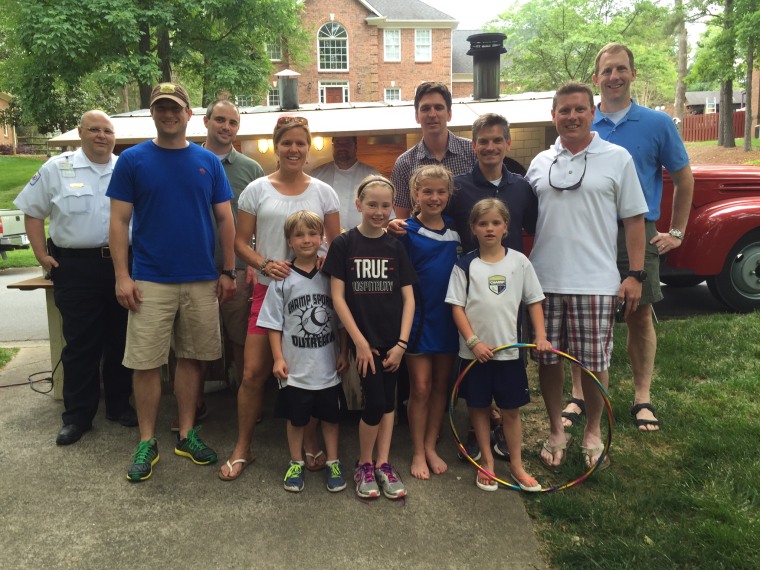Paul Wylie won the silver medal in men’s figure skating at the 1992 Winter Olympic Games in Albertville, France. At 51, he continues to coach and perform, and has enjoyed good health. But on April 21, 2015, he suddenly collapsed while running. Doctors diagnosed him with sudden cardiac arrest, a condition in which the heart unexpectedly stops beating. About 300,000 Americans experience it each year, with an average survival rate of only 10 percent.
Wylie opened up about his health scare with TODAY’s A. Pawlowski.
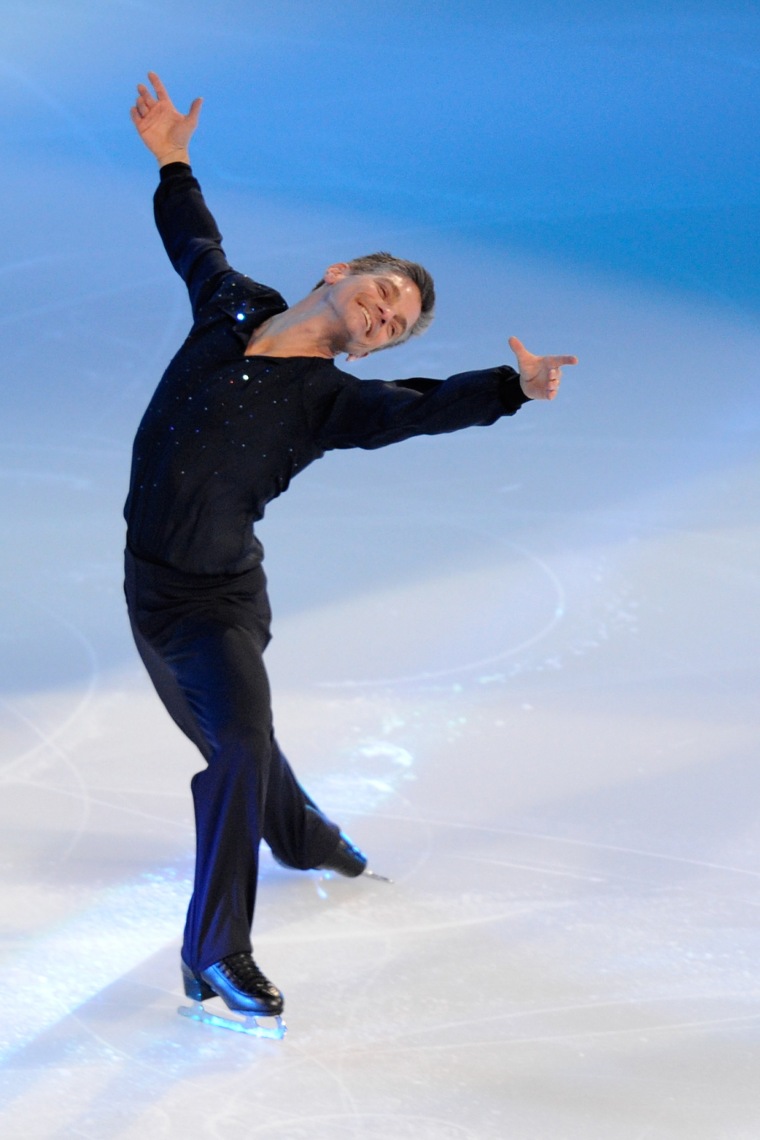
It took me days just to get my head around the fact that I was so close to death — in fact, that I had died — and just how fortunate I felt to have had the circumstances be what they were.
I was in a workout group based in Charlotte, North Carolina, where I live. This particular day, we were doing a series of sprints. It was definitely a strenuous workout, but I guess part of being an Olympic athlete is that you’re used to pushing your max.
I was in the middle of a sprint when I evidently doubled over and fell forward. This is all what I have been told because I don’t remember a thing. People said it was just so strange.
My heart stopped. Once I was lying down, I stopped breathing. That’s when one of the guys started CPR on me and another guy continued. He wound up doing 450 chest compressions, which is fully exhausting. It’s a truly heroic event. He kept up the compressions until the ambulance came.
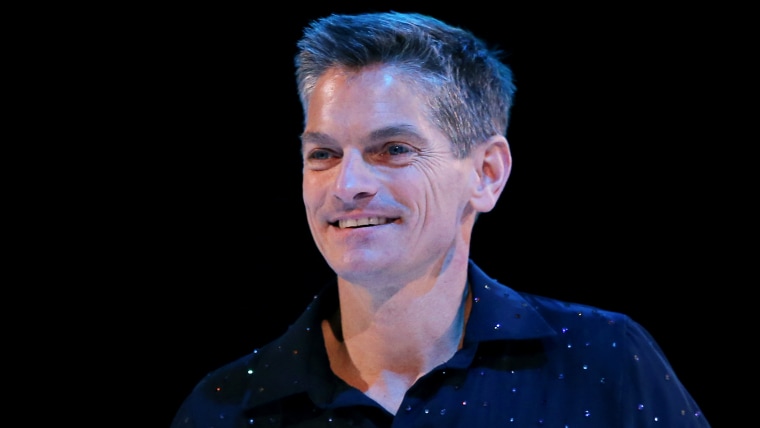
The first responders came and defibrillated me. After the shock didn’t wake me back up, they gave me an injection, possibly epinephrine, which then did wake me up. They got my heart started again.
The hospital was five minutes away and immediately, they started to cool me. They lower your body temperature to 90 degrees (to protect the brain) — it’s called therapeutic hypothermia — and they induced a coma.
I was in a coma for two days and then I came to. My wife said the first words out of my mouth were “health insurance.” I wanted to make sure that we had paid our premiums because I knew that it was going to be expensive!
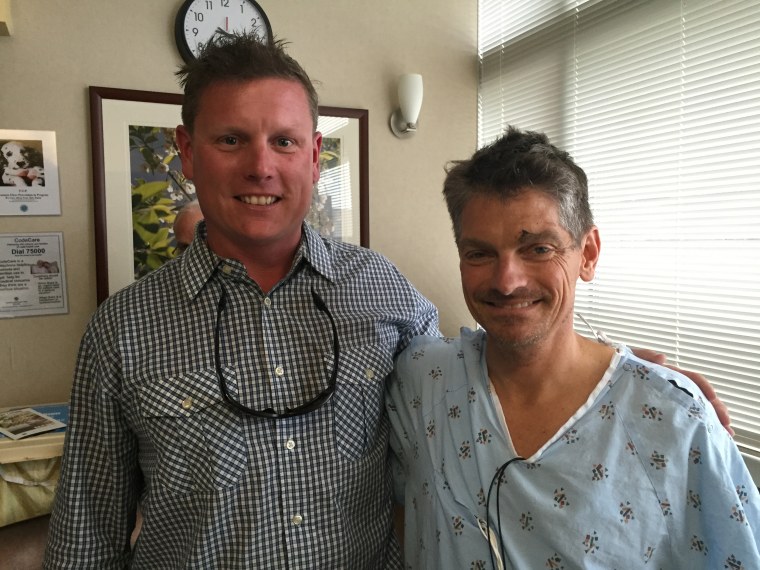
Then I asked her: How did I get here? I had assumed that I passed out. She said it was more serious than that and started to gently tell me the story.
When you’re out for that long, often times you wind up with a lot of brain damage. I’m just so fortunate to have had all of those things go in a positive direction. I definitely feel like God was watching out for me that day.
I was in the hospital for nine days. They ran a bunch of tests on me and they really could find nothing wrong with my heart, in terms of blockages. They did all of the tests to see if it was a myocardial infarction, and it wasn’t at all.
It was a completely electrical situation, which is why they call it sudden cardiac arrest. There was no cause given for it.
They gave me an ICD, a combo defibrillator and pacemaker, which has been working great. They restrict your driving for six months, which is really painful. I had to rely on my wife and friends and it taught me to be dependent, which is something I think I’m terrible at. But it made me really appreciate just what I had and it gave me some time to be with other folks.
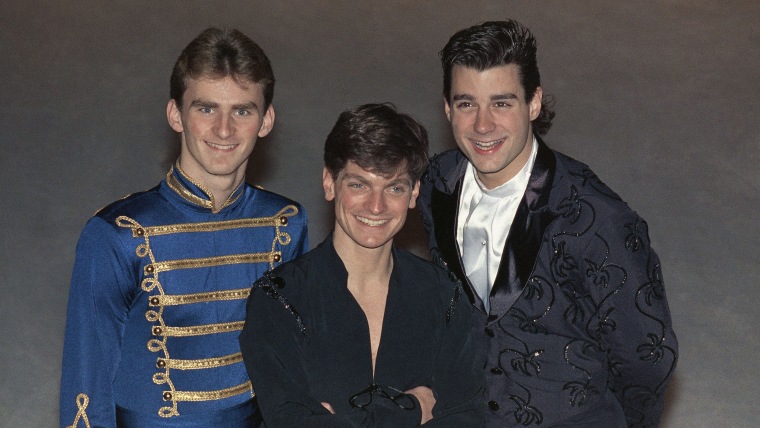
I was back to skating after about a week after I got out of the hospital. I wasn’t really sure what I was going to be able to do. I had these little goals and I feel like every month, I got stronger and stronger.
The first performance I did was at “An Evening with Champions” in September, which is a benefit for children’s cancer research at Harvard that I host every year. I just decided on a whim to pick a piece of music and skate to it. I didn’t do anything hard, I just did an axel, but it was just good to be in front of an audience.
Last month, I skated in a show with my children. Skating in front of audiences again is thrilling. It’s something that I feel like is a gift that I get to still enjoy.
Most people don’t know the story of my health scare at all. I worry about a recurrence, but because I have the defibrillator and the pacemaker, that is sort of an insurance policy.
My message to men about health is you have to be in regular communication with your doctor and do the regular checkups. Also, pay attention to your diet and exercise because I don’t think I would have been able to snap back if it hadn’t been for those things being intact.
Have your house in order. We have a will, we have all those things that people talk about and I’m glad we do.
I was very fortunate. I’m way past the normal retirement age for a skater, so it is a little weird anyway but it’s amazing to think about what could have been and how much I owe to the people who were there and responding.
